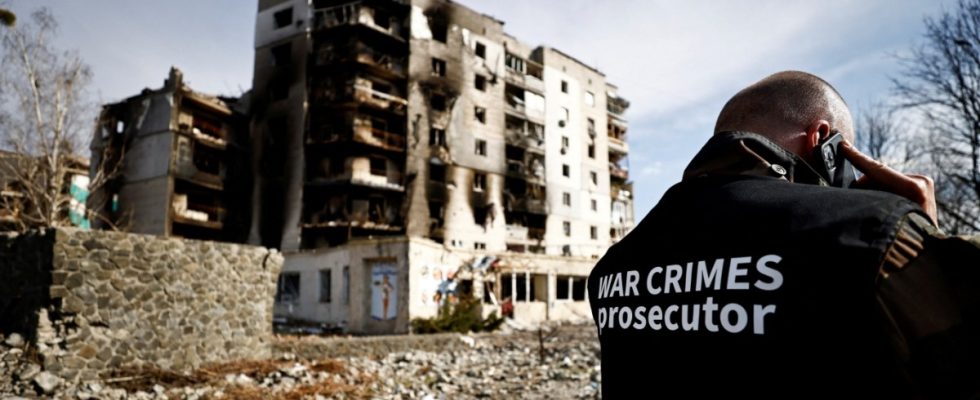Andriy Kostin spoke of a “historic moment”. In a euphoric speech, the Ukrainian Prosecutor General said that this day would define an epoch when a weak point in international law would be closed. The reason for his words is the start of work for the so-called Center for Prosecution of Crimes of Aggression Against Ukraine, or ICPA for short. The center is to bundle investigations into those allegedly responsible for the Russian war of aggression, evidence is to be collected in a database and shared.
What is the importance of the ICPA ? What are his options for action? And is the center a way towards a special tribunal for Russian war criminals? The most important points at a glance:
What exactly is the ICPA?
The center is housed in the European judicial authority Eurojust in The Hague and is essentially supported by its six member states: Lithuania, Latvia, Estonia, Poland, Romania and Ukraine. In the coming months, other states could also be investigating Russia’s war against Ukraine. The International Criminal Court ICC supports the ICPA, as does the US. The center is financed by the EU Commission.
The ICPA is not an independent investigative authority and has no comparable powers. It is only intended to coordinate the investigations into those responsible for the Russian war of aggression. Evidence is to be collected and shared in a specially created database. The main focus here is on the planning, preparation and execution of the Russian attack. The aim is to make the evidence available to prosecutors in a possible later trial against Russian war criminals.
The center wants to prosecute Russia for its war of aggression. How is it different from war crimes?
This is about legal subtleties. At the Nuremberg tribunal against Nazi war criminals, the judges described a war of aggression as the “crime of the crimes”, as the greatest crime from which all subsequent crimes would arise. As far as the requirements for prosecution are concerned, the “crime of all crimes” is much more complicated. For a long time, the International Criminal Court was not able to investigate warlike aggression, it has only been allowed to do so since 2018 – with restrictions. The alleged attacking State and the alleged attacked State must consent to an investigation. It seems impossible that Russia will do that.
War crimes, on the other hand, are easier to prosecute. One of the two parties to the conflict must recognize the case law of the ICC. Even if Ukraine has not yet ratified the Rome Statute, the International Criminal Court can investigate here.
So will there soon be a special tribunal for the Russian war of aggression?
A court dealing with Russia’s war of aggression does not yet exist, but calls for it have been made repeatedly for months, most recently by Ukrainian President Volodymyr Zelenskiy. But EU Commission President Ursula von der Leyen is also open to such a tribunal, as is Foreign Minister Annalena Baerbock. The establishment of the center in The Hague could be a first step towards a tribunal.
However, it is unclear whether there will actually be a special tribunal. Because using such a court is anything but easy. The General Assembly of the United Nations would be responsible for this, and whether there is a majority for a special tribunal is at least doubtful. Another option would be to set up a special Ukrainian court, which would also have international judges working on it. Kenneth Polite, Deputy Attorney General of the United States, brought such a model into play again on Monday. However, critics of the idea warn that Russian President Vladimir Putin might be immune from such a court.
However, the evidence collected at the ICPA could also be used in trials before national courts, said EU Justice Commissioner Didier Reynders. The ICPA does not work specifically for a special international court.
What investigations against Russia are there already?
Since the beginning of the war, ICC prosecutors have been investigating the situation in Ukraine to investigate possible war crimes and crimes against humanity. Last March, the ICC then announced that it had issued arrest warrants for both Putin and Russia’s child rights commissioner, Maria Lvova-Belowa. It was about war crimes, more precisely about the kidnapping of Ukrainian children to Russia. There is a suspicion that Putin and Lwova-Belowa are responsible for the kidnappings. The Russian occupiers probably brought hundreds of thousands of children from the conquered areas, and some of them were put up for adoption in Russia. The US estimates that 260,000 children were deported last year, while Ukraine says 19,492 children were deported to Russia. However, only confirmed cases are included in these statistics.

